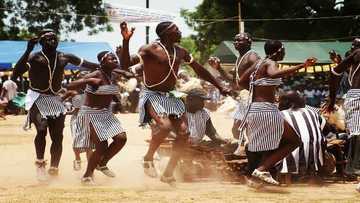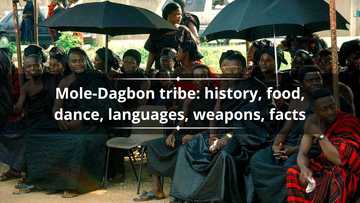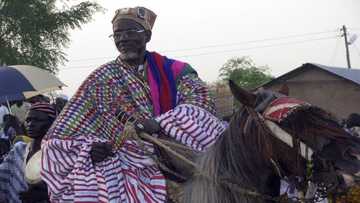Mampruli: basic phrases and interesting facts
Mampruli is one of the two Gur languages spoken in Nothern Ghana by the Maprusi people. It is also referred to as, Mamprusi, Mampelle, or Ŋmampulli. The Dagbani people can understand Mapruli with little or no effort at all because they are mutually intelligible. This language is spoken across the Northern region of the Northern parts of Ghana stretching from east to west from Nakpanduri to Yizeesi and centred in Gambaga/Nalerigu and Walewale towns. One Mampruli speaker is referred to as a Ŋmampuriga, while many Mampruli speakers are referred to as Ŋmampurisi, and the land of the Mamprusi is Ŋmampurigu.
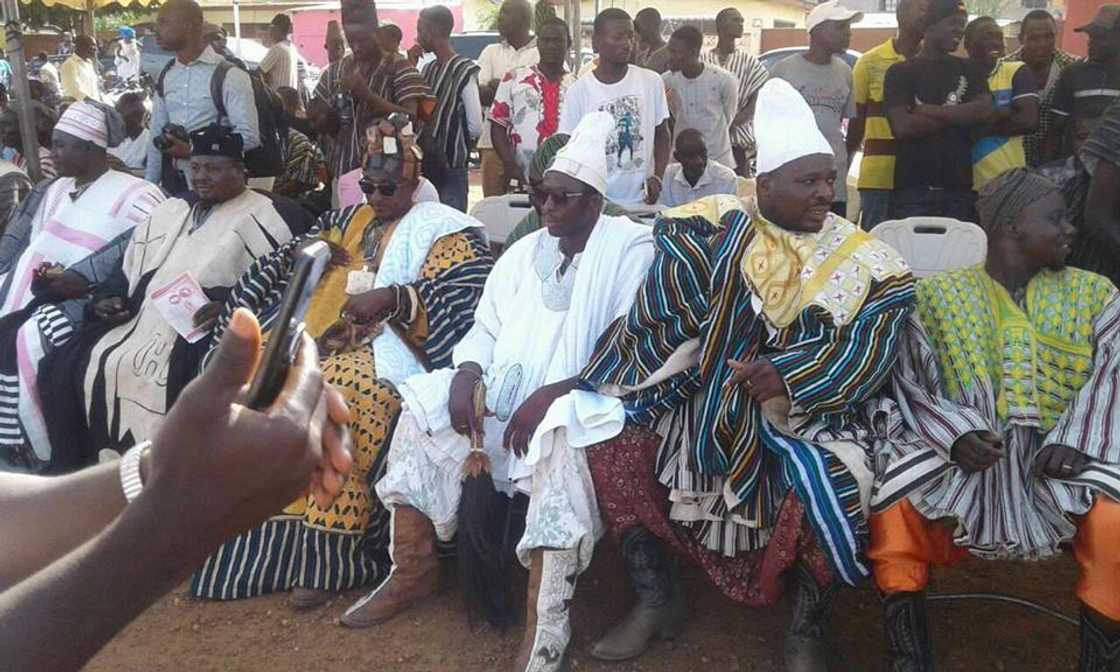
Source: UGC
Mampruli language is a part of the Gur family, which is a part and parcel of the Niger-Congo language family. This language family covers the larger region of Sub-Saharan Africa. In Gur, Mampruli belongs to the Western Oti–Volta subgroup, and specifically to its Southeastern cluster of six to eight languages. Closely related languages spoken in the region that have striking similarities to Mampruli include Dagbani, Nanun, Kamara and Hanga in the Northern Region, and Kusaal, Nabit and Talni in the Upper East Region.
How many languages are spoken in Ghana? What is the most common language spoken in Ghana? What is the language of Ghana called? Well, Ghanaians are diverse people with over 80 languages but are united with one language, English. Is Ghana a French-speaking country? No, other than their native languages, Ghanaians speak English as a common language, which allows them to do business and interact freely. This piece, however, is about the Mampruli speakers in Ghana, their basic phrases and interesting facts.
READ ALSO: African-American mother and daughter become emotional during visit to Ghana to trace root
If you want to learn Mampruli, it is paramount that you begin with the basics. This will provide a good foundation where you can build your knowledge about the language easily. Here are some of the basic phrases that you can learn quickly, beginning with greetings, time and days of the week.
Mampruli – Ghana
These words and phrases translations have been written phonetically.
Greetings
- Good morning - DAH-su-bah
- Good midday (noon – 4 pm) - NEE-wun-TAHNG-ah
- Good evening - NEE-zah-NO-ree
- Goodnight - ah-nee-WOO-la
- Welcome - JAAAH-ree
The universal response to these and several other greetings is Naa. Most other greetings have to do with what the person is doing at the time you greet them: working, talking, walking around town, etc. Each response is always Naa.
- At work - nee - tu-MAH
- Carrying water from the river - nee ee KU-liga
- Having a conversation - nee ee SWAriga
- Walking - nee GO-rum
- At market (to one person) - nee ee DAH
- At market (to more than one person) - nee yah-DAH
Health & family greetings
Many greetings are followed by a question about your health or family.
- How was your last night’s sleep? - EE-sa-don-WU-la
- How is your health? - ah-LAH-fee-ya or ah-LAH-fee-ya BEH-nee
- How is your husband? - ee-seerah beh WU-la
- How is your wife? - ee-pwa beh WU-la
- How are your house people? - ee-yeer dee-ma
- How is your father? - ee bah beh WU-la
- How is your mother? - ee mah beh WU-la
- How is your child? - bee-YAH beh WU-la
- How are your children? - ee bee-SEE beh WU-la
- General response (health is there): ah-LAH-fee-ya or ah-LAH-fee-ya BEH-nee
- If one has been sick and is now better, the response is: DISHWA
- If one is sick, the response is: kah ah-LAH-fee-ya or ah-LAH-fee-ya kah-nee
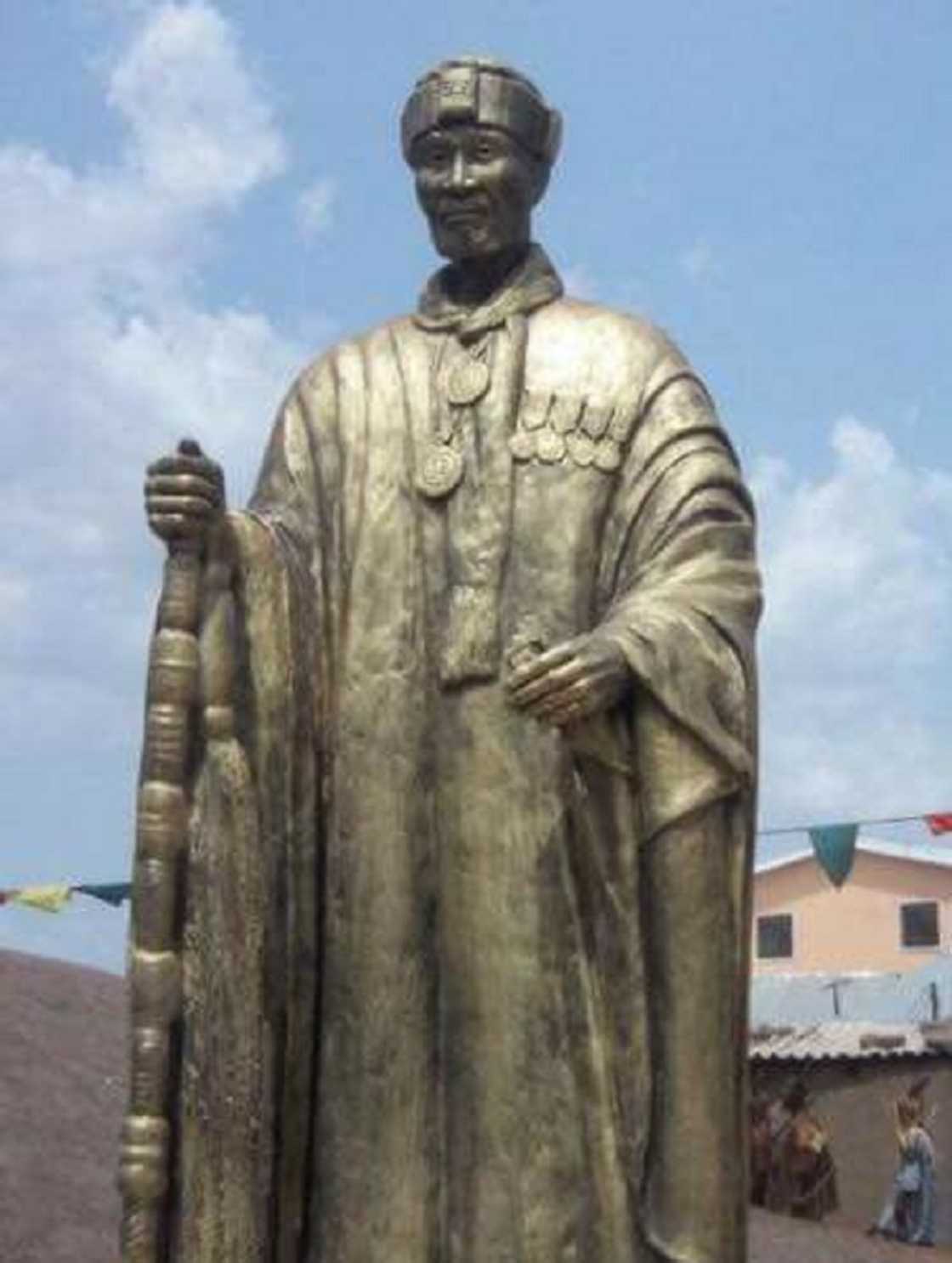
Source: UGC
Time and days
- Sunday - ah-lah-ha-ree
- Monday - ah-ta-nee
- Tuesday - ah-ta-lah-ta
- Wednesday - ah-lah-ree-bah
- Thursday - ah-lah-mee-see
- Friday - ah-zoo-mah
- Saturday - ah-see-bee-ree
Dah-ree added after a day means the coming day. E.g.
- This coming Monday - ah-ta-nee dah-ree
Add lah dah-ree, and it means last week’s day.
- Last Saturday - ah-see-bee-ree lah dah-ree
- Tomorrow - BEE-oh
- Yesterday - SOE-si-lah
- Day/Days - DAH-ree
- Week - baw-qui
- Month/Months - go-ree/go-yah
- Year/Years - youm-nee/you-mah
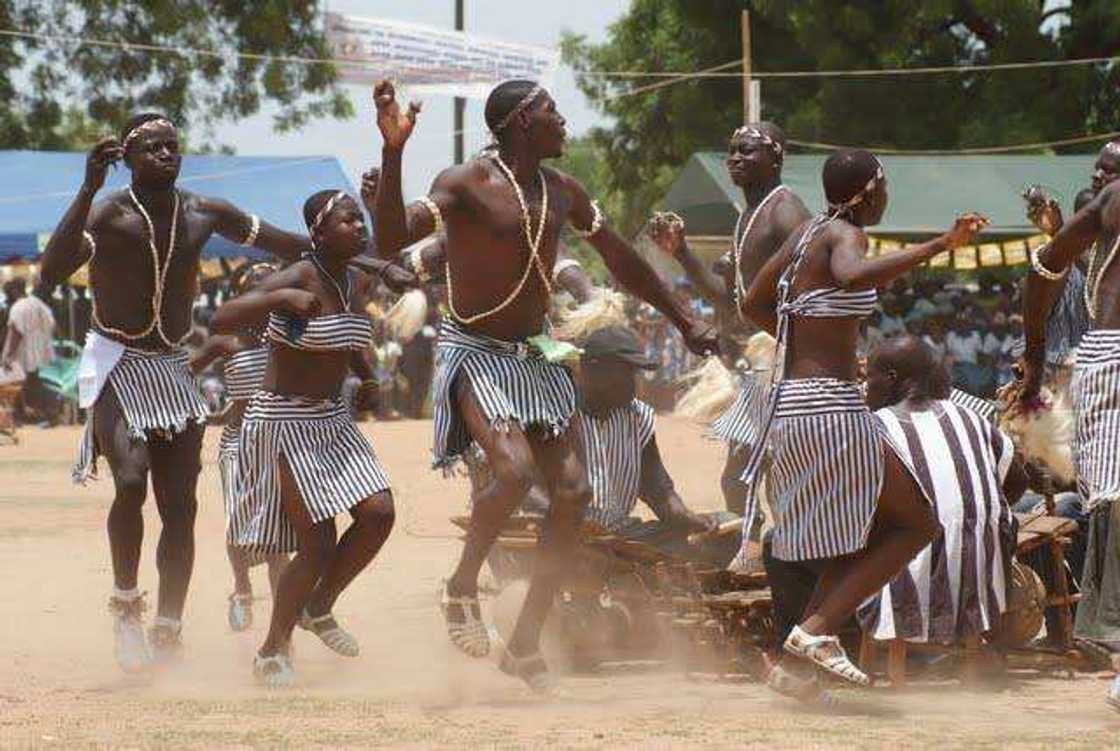
Source: UGC
READ ALSO: African brand goes global; partners with top Swedish retail giant(Photos)
Numbers
- 1 (one) - yee-nee
- 2 (two) - ah-bah-yee
- 3 (three) - ah-bah-tah
- 4 (four) - ah-bah-naasi
- 5 (five) - ah-bah-nu
- 6 (six) - ah-bah-yoo-bu
- 7 (seven) - ah-bah-yoo-pwa
- 8 (eight) - ah-bah-nee
- 9 (nine) - ah-bah-weh
- 10 (ten) - pee-yah
Other words and phrases
- God - nah-WOO-nee
- Jesus - YEE-sa
- Blessing - ah-lah-BAH-rik-ah
- Amen - ah-MEE
- God give you health - nah-WOON PASS-ee
- Thank you - mm pooh-see-ah
Mampruli interesting facts
These are interesting facts that will help you understand the Mampruli people and the Mampruli language better.
- Mampruli people are found in the Nothern part of Ghana and Togo.
- Mapruli is a typical member of a major division of Central Gur called the Oti-Volta.
- Alternative names are; Mamprule, Mampelle, Mamprusi, Ngmamperli, Mamprussi, Manpelle, , Ŋmampəlli, Nmampurli.
- The population of the Mampruli people in Ghana is 316,000, and are increasing as time goes by.
- They are located in Ghana's Northern region: in the east and the west of Gambaga; Upper East region: they are scattered on the border areas at the north of the White Volta river, between Pwalagu and Zongoiri.
- This is their classification; Atlantic-Congo, Niger-Congo, Gur, Volta-Congo, North, Oti-Volta, Western, Central, Southeast, Northern.
- They have several dialects. These are Eastern Mampruli. The intelligibility with Dagbani is at 50%. They also have a lexical similarity of 95% with the Dagbani; and 90% with the Farefare.
- Mamprugu Kingdom stands in history as the first-ever Kingdom to be formed in Ghana. In addition to this, it is also the very first to begin the existence and process of Namship in Ghana.
- The Great Naa Gbanwah/Gbewah founded the Mamprugu at Pusiga, in around the 13th century.
- The Kingdom stretches most parts of the North East, Northern, Upper West and the Upper East Regions of Ghana, and into Burkina Faso.
- The name of the kingdom is Mamprugu, the ethnicity is Mamprusi, and the language is Mampruli.
Mampruli are proud people for being the first Kingdom. They also take pride in being one of the most spoken languages in Ghana. Hopefully, these interesting facts have made you appreciate the Mampruli people.
READ ALSO:
- Efia Odo 'disgraces' Akrobeto on live TV (Video)
- Ghanaians blast top NDC man after claims that Nana Addo has disgraced everyone
- Details of Harvard Law School’s first deaf and blind graduate emerge online
Source: YEN.com.gh

